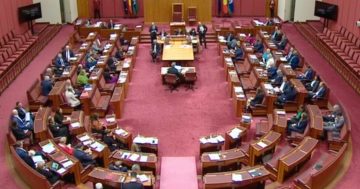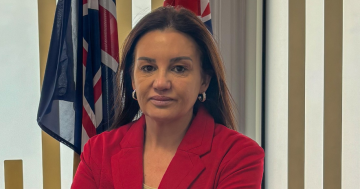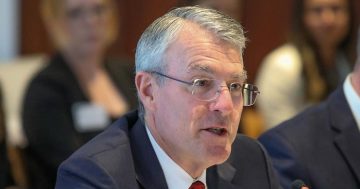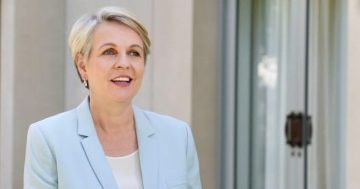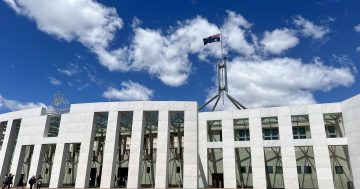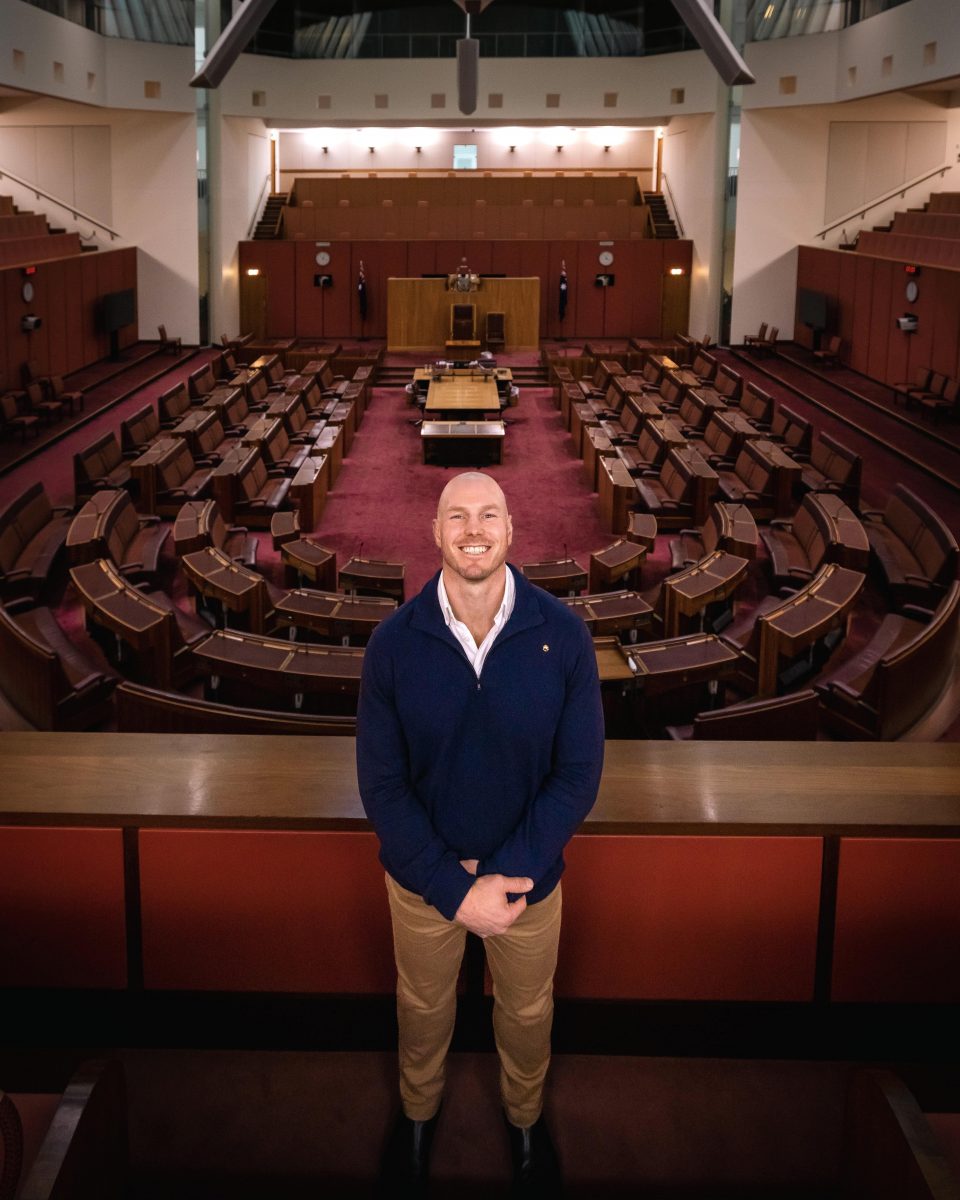
Senator David Pocock in the Senate chamber: the more support he can be given, the better the return to the ACT. Photo: Lincoln Magee
The ACT will be a big loser if Prime Minister Anthony Albanese persists with his plans to cut the number of parliamentary advisers the crossbenchers can employ.
It is also a misstep from him if he believes the change would simply be reverting to the situation before his predecessor boosted crossbench parliamentary staff for his own political reasons.
He and Senator Katy Gallagher can call it a rationalisation, a budget saving or revocation of Morrison’s largesse, but they will be ignoring the lessons of the election and the expectations the public have of the new parliament.
The size of the crossbench indicates that a great many Australians do not want to see politics resume as business as usual.
New independent ACT Senator David Pocock has made the case against the changes, arguing that the public expects more scrutiny of government and legislation, not less.
He has also said that while party members have their own organisations to support them, and most follow orders on how to vote on a bill, independents like him, if they are doing their jobs properly, will need to be across every bit of legislation, and will need all the help they can get.
It’s great to hear that the Parliamentary Library will be beefed up to assist them, but that will not be enough to provide anywhere near a level playing field.
Former senator Nick Xenophon this week attested to the enormous workload and long hours that members and senators endure, in contrast to the popular myth of politicians on the gravy train.
The Jenkins Review of Parliamentary Workplaces also highlighted understaffing and overwork and the risks they posed to employees and outcomes.
The crossbenchers will still have four electoral office staff, but the temptation will be to divert some to the parliamentary workload, reducing constituent engagement.
The ACT has three MPs but only two Senators, one of which is a senior minister who will have little time for that basic constituent business.
In the last parliament, Liberal Senator Zed Seselja was also a minister, albeit a junior one compared with Senator Gallagher, who is responsible for Finance and the Public Service.
That probably contributed to the perception that he had lost touch with the voters, and Senator Gallagher could face the same problem at the next election.
Senator Gallagher argues her position in the government will make it easier to advocate for the ACT, but the reality is her higher responsibility will be to the party and national interest.
That will leave the three MPs, one of whom is a junior minister, to carry the torch for the ACT, and Senator Pocock.
The more support Senator Pocock can be given the better return there will be to the Parliament, his constituents and the ACT generally.
Democracy in its rawest form is a numbers game, and when reduced to that level, it can be more a counting game than achieving the best possible outcome in a piece of legislation.
Mr Albanese has been around long enough in the Labor Party to know how to count, and the calculus may be that Labor would be better off not having to deal with the crossbench, but if it did, it need not make it easier for them.
The crossbench certainly sees it that way.
Labor may have also calculated that while Senator Pocock might be a deciding vote for legislation, his progressive record suggests he will support its legislation.
That would be a mistake.
And antagonising Senator Pocock and the other crossbenchers is a poor way to start the new parliament. It’s also a tactical blunder when you have no way of knowing how it will pan out at critical points over the next three years.
The cost of four advisers versus one is negligible, the risk considerable.
The other point the census has just reinforced is that two Senators for a population of 454,000 is selling the ACT short, especially if comparing the Territory to Tasmania or even South Australia.
The case can be made that the Territory now deserves two more Senators, despite the hurdles in current electoral law.
Nobbling one of the ACT’s Senators in an already under-represented jurisdiction cannot be good for Canberrans.
There may still be the possibility that on his return to Australia, Mr Albanese may gauge whether the decision is worth the pain and negotiate a compromise outcome.
If not, his decision will come back to bite him, eventually.













